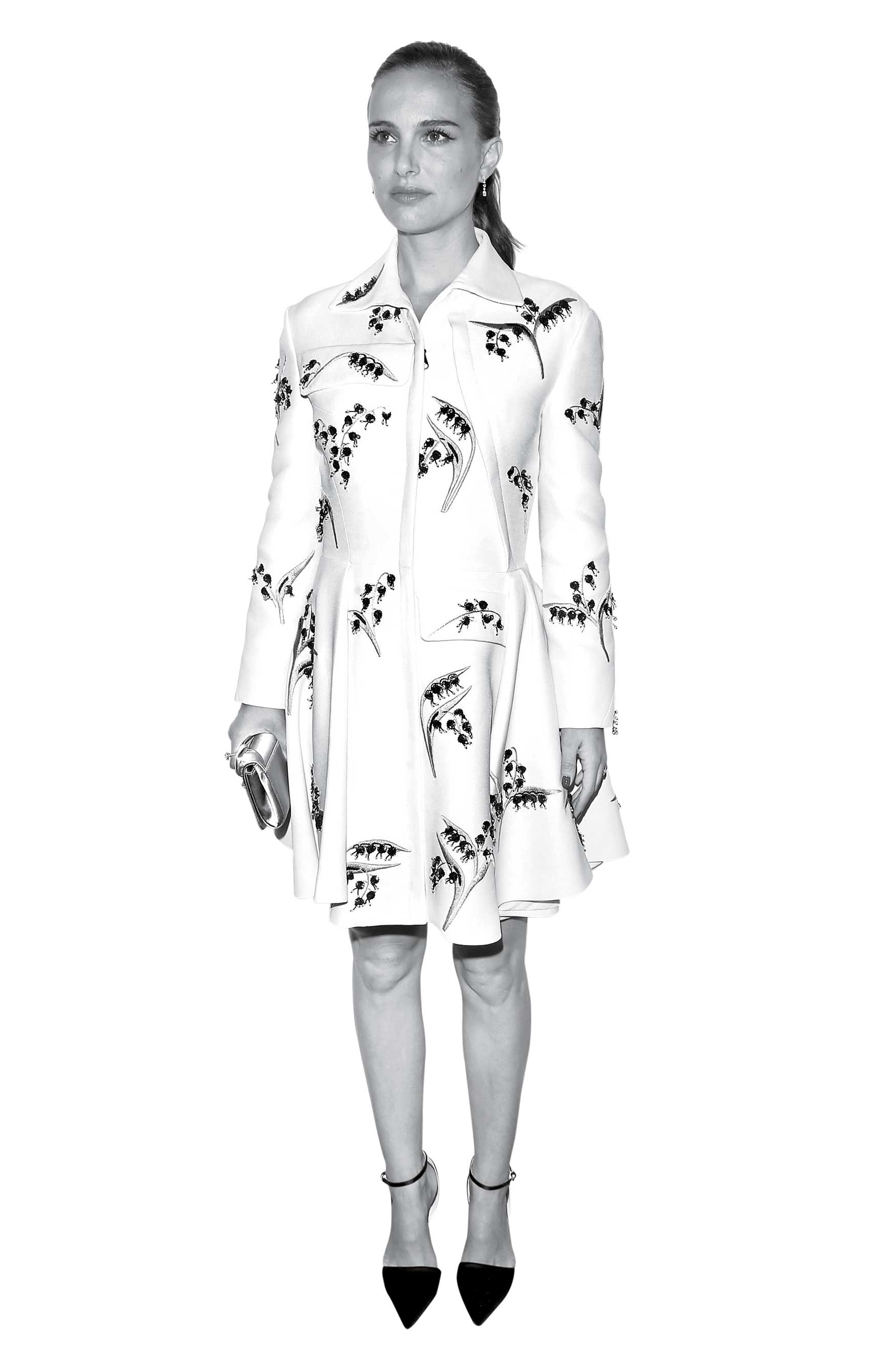
Jackie returns repeatedly to the image of the First Lady, in shock, holding her dying husband John F. Kennedy. What was it like to film such a traumatic moment?
It was the toughest thing to shoot. The actual assassination we’ve seen so many times on tape, but unfortunately for her–and luckily for the rest of the world–she’s the only one who knows how that feels. It was the thing I was most concerned about. It’s so extreme that you never know if you’ve gone far enough.
Do you feel an added level of responsibility when it comes to playing a real person?
There’s a higher emotional truth you can achieve by playing with fiction. The Arthur Schlesinger interviews were so helpful to me. They had transcripts, and she edited them, so there’s big chunks missing, and that gave me a feeling of real liberty, because there’s a lot of stuff she said that she did not want out there. It had to be relatively racy or make her or the family not look good.
Jacqueline and Robert Kennedy’s stoicism, more than anything, felt like something out of history.
The Paris attacks in November 2015 happened just before we started shooting just outside of Paris, and the area [where] we were shooting was under lockdown. There’s a feeling when something happens like that–people don’t want to go out. And the fact that she was, in the days after, planning a procession to honor her husband really shows this great bravery in the face of this terror. The country would go on and they would get back to normal and it was going to be O.K., even though something unspeakable had happened.
After your Oscar win for Black Swan in 2011, you took a hiatus from acting to spend time with your family. Why return now?
For me, it was instinct. Most women don’t have that luxury. I feel really lucky that I got to be at home as much as I wanted. And when I was ready to work again, it wasn’t that I had mountains of offers at my door, but I could still find something. It was well worth it for me.
Did being a parent add to the role for you?
It makes you understand the ability to be calm and collected under that kind of emotional and psychological pressure. When you have kids, you can’t afford to be a mess. There’s moments when you are, but you need to pull it together. You see how that impacted her ability to gather herself under such awful circumstances.
The movie argues that Jacqueline’s genius is proved by the fact that Camelot is remembered so fondly–despite JFK’s short tenure, during which he wasn’t universally liked.
Having Pablo [Larraín] as director and the fact that he’s Chilean–he didn’t have a “Kennedys are king and queen” image, though he understood they had anointed themselves. It took a real insight and intellect and understanding of history–that the story that lasts is the best myth. Whoever comes up with the best fairy tale wins. It has nothing to do with what actually happened. She came up with something that lasted. It’s very intelligent and quite feminist to say, “I’m going to be author of my own story. Not you.” Everyone does it now–this is the story of social media. But she was doing it 50 years ago.
This is a risky take on an icon. What about the film gave you doubt?
Sometimes you’re like, “Is it enough? This is the worst thing that could ever happen. It’s got to be more.” And then you’re like, “Is this too much?” The way Pablo approached it–looking for things that were a bit forbidden, emotions we wouldn’t necessarily ascribe to Jackie Kennedy, who we all revere–allowed it to be more varied and interesting than just watching someone cry for two hours.
More Must-Reads from TIME
- Donald Trump Is TIME's 2024 Person of the Year
- Why We Chose Trump as Person of the Year
- Is Intermittent Fasting Good or Bad for You?
- The 100 Must-Read Books of 2024
- The 20 Best Christmas TV Episodes
- Column: If Optimism Feels Ridiculous Now, Try Hope
- The Future of Climate Action Is Trade Policy
- Merle Bombardieri Is Helping People Make the Baby Decision
Contact us at letters@time.com